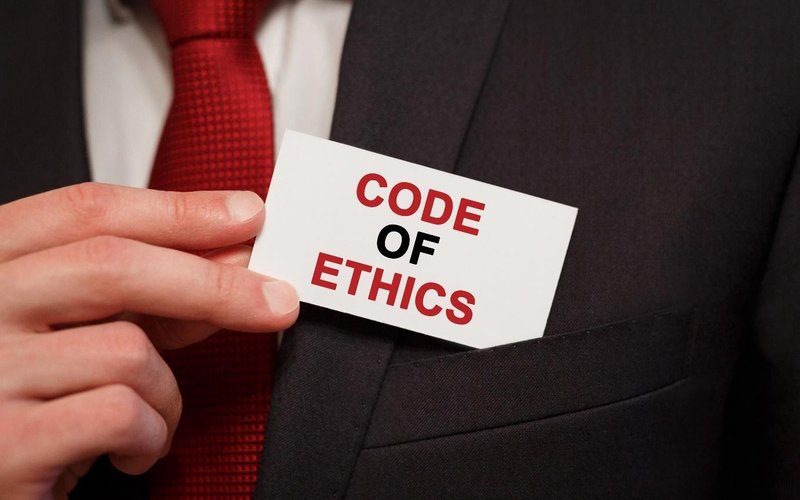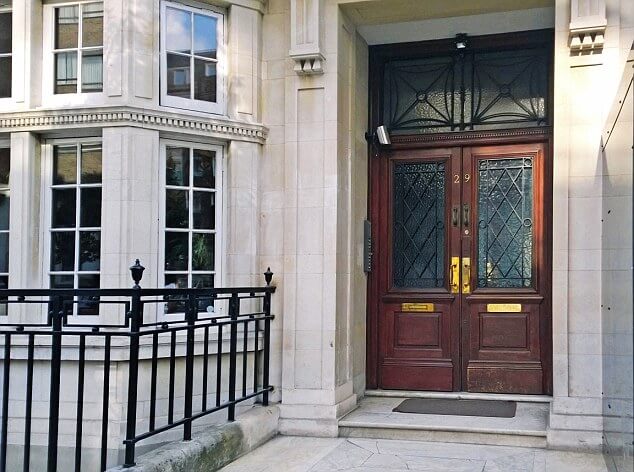
by John McCarthy Consulting Ltd. | Feb 4, 2020 | Blog, News
As we highlighted last week there is a newly revised and restructured Code of Ethics coming soon for accountants in Ireland, expected to be effective from the 1st of March 2020.
As readers might know, the Code of Ethics used by accountants across the British Isles is based on the code issued by the International Ethics Standards Board for Accountants – the IESBA code. The format and layout for the new Code of Ethics will look completely different from the previous version. The purpose of this change is to help with the understanding and application of ethical practice.
NOCLAR
The most significant change, however, is the inclusion of ‘NOCLAR’ (Non-Compliance with Law And Regulation), which provides further emphasis on whistleblowing in the ‘public interest’. The term ‘public interest’ is dealt with in 100.1 of the existing Code as follows:
‘Acting in the public interest involves having regard to the legitimate interests of clients, government, financial institutions, employers, employees, investors, the business and financial community and others who rely upon the objectivity and integrity of the accounting profession to support the propriety and orderly functioning of commerce.
This reliance imposes a public interest responsibility on the profession. Professional accountants* shall take into consideration the public interest and reasonable and informed public perception in deciding whether to accept or continue with an engagement or appointment, bearing in mind that the level of the public interest will be greater in larger entities and entities which are in the public eye.’
NOCLAR is dealt with in two brand-new sections 260 and 360, which cover members in ‘business’ and ‘public practice’, respectively.
The Code includes additional guidance material giving members specific permission to breach confidentiality where the accountant considers it to be in the public interest.
The inclusion of NOCLAR in the IESBA Code requires an accountant suspecting a business or client related illegal act to consider whether the act is inconsequential; and if not, they should raise it internally with the client or employer. If the accountant does not consider that the client or employer has dealt with the issue properly, the accountant should make disclosure to the relevant external authority, if it is in the public interest to do so.
The previous version of the Code of Ethics, however, already included specific detail to breach confidentiality in the public interest and so the NOCLAR provisions (new sections 260 and 360) can be seen as a change of detail rather than of substance.
Next week we will look at the second most important change in the Code’s structure, to do with conflicts of interest.
Please see our latest additions to the website store which are the template AML Business-Wide Risk Assessment template and a webinar on how to prepare it. Both of these help firms comply with the latest requirements of Section 30A of the Criminal Justice (Money Laundering and Terrorist Financing) Acts, 2010 to 2018.
For other webinar topics including Investment Property Accounting, FRS 105, Common Errors in FRS 102 Accounting and the latest on FRS 105 and company law, visit our online webinar training website.
Once the webinar viewing is completed, customers will automatically receive a CPD Certificate confirming their learning.

by John McCarthy Consulting Ltd. | Jan 27, 2020 | Blog, News
A reminder of what they are before the new Code of Ethics becomes effective
The nature of accountancy and the complexity of the work that accountants, tax advisers, insolvency practitioners and auditors do, means that this work needs to be trusted, and demonstrate the highest standards of professional conduct.
The Code of Ethics and its obligations are therefore a key part of the accounting profession’s commitment to these standards.
Early this year, Chartered Accountants Ireland (among the other professional bodies that subscribe to the IESBA Code) will be launching a new Code of Ethics. If you want to get a sneak peek at what the new Code will look like, have a look at the UK ICAEW Code here at Code of Ethics, updated from 1 January 2020.
It is not expected that there will be many changes of substance to the Professional Accountancy Bodies Codes of Ethics. One of the primary differences, however, is expected to be the new style of language used in writing the Code. The purpose of this change is to make the new Code easier to navigate and to help with the understanding and application of ethical practice. For example, it will be clearer which parts of the new Code are requirements, and which are guidance.
Before this new Code comes into effect, as a reminder, let’s look at the five fundamental principles (which will remain unchanged) of the existing code. These principles govern all ethical behaviour for accountants in practice and in business and indeed accountancy students:
Fundamental Principles of Ethical Behaviour:
- Integrity – to be straightforward and honest in all professional and business relationships. Integrity also means that members must not knowingly be associated with misleading information.
- Objectivity – not to compromise professional or business judgements because of bias, conflict of interest or undue influence of others. If undertaking an assurance engagement, members must also be and appear to be independent.
- Professional Competence and Due Care – to attain and maintain professional knowledge and skill at the level required to ensure that a client or employing organisation receives competent professional service, based on current technical and professional standards and relevant legislation; and act diligently and in accordance with applicable technical and professional standards.
- Confidentiality – to respect the confidentiality of information acquired as a result of professional and business relationships. Confidential information must not be disclosed outside the organisation without authority, unless there is a duty or right to disclose, or disclosure is in the public interest and permitted by law.
- Professional Behaviour – to comply with relevant laws and regulations and avoid any conduct that the professional accountant knows or should know might discredit the profession.
Please visit our website for 20 webinar topics including Investment Property Accounting, FRS 105, Common Errors in FRS 102 Accounting and the latest on FRS 105 and company law, visit our online webinar training website.
Once viewing is completed, customers will automatically receive a CPD Certificate confirming their learning.

by John McCarthy Consulting Ltd. | Jan 14, 2020 | Blog, News
A question that I often get asked is: how are changes in depreciation policy accounted for?
The follow up question usually asked is whether such changes are accounted for prospectively or retrospectively under FRS 102?
The answer, however, depends on whether the change is a change in ‘estimate’ or a change in accounting ‘policy’.
Change in accounting estimate
Whilst commonly referred to as a ‘depreciation policy’, the depreciation method used is actually an accounting estimate (as detailed in FRS 102 paragraph 17.23).
For example, an entity changing from the reducing balance method to a straight line basis of depreciation, should account for this as a change in accounting estimate, in line with FRS 102 paragraph 10.16, by applying the change prospectively from the date of the change.
Both the useful life and residual value of an asset are accounting estimates. These estimates should be reviewed and updated, where necessary, in accordance with FRS 102 paragraph 17.19. Any amendments to either useful life or residual value are also applied prospectively from the date of change.
Change of accounting policy
When an entity decides to change where a depreciation charge is presented in the accounts, for example, changing its classification from cost of sales to administrative expenses, this would be deemed to be a change of accounting policy (unless, for example, there is a change in circumstance e.g. because of a change in production methods, meaning that the asset is now being used in a different way – in which case the change in presentation would be actioned prospectively from the date of change).
Under FRS 102 paragraph 10.8, this change must result in the financial statements providing reliable and more relevant information about the effects of transactions on the entity’s financial position or performance. When this criteria is met, entities should account for this change in accounting policy retrospectively and therefore the relevant depreciation charge for the prior period should also be reclassified.
If ever in doubt about the applicable rule in the case of your technical question please e-mail us at john@jmcc.ie and we will let you know if there is a charge for your technical question and how long it will take us to generate a reply. Usually technical questions are answered in 48 hours.
For more in technical accounting topics see our online webinars accessible for up to one year from date of purchase. There are 20 topics available and more are added all the time.
Topics include Investment Property Accounting, FRS 105, Common Errors in FRS 102 Accounting and the latest on FRS 105 and company law, visit our online webinar training website. Once viewing is completed, customers will receive a CPD Certificate confirming their learning.
See also our on-demand webinars on AML, accessible at any time and the new requirement for the AML Business Risk Assessment.

by John McCarthy Consulting Ltd. | Jan 6, 2020 | Blog, News
A ten-year anniversary meeting of the Global Forum, celebrating the global impact of tax transparency, was held in Paris recently.
It was hosted by the OECD – Organisation for Economic Co-operation and Development – which has been promoting tax transparency over the last decade.
Two features of the OECD tax transparency agenda are:
- Exchange of Information on Request (EOIR) – which has led to the recovery of nearly €7.5 billion of additional tax revenue and;
- Automatic Exchange of Information (AEOI) – on the financial accounts of non-residents. Commencing in 2017 with 100 countries sharing information on 11 million offshore accounts, it has increased to 47 million such accounts being exchanged in 2018. The total value of these financial accounts exchanged in 2018 came to €4.9 trillion. This level of cooperation helps greatly enhance tax transparency.
There is more information about the exchange of information in the Global Forum Anniversary Report.
Ireland is an active member of the OECD and a good example of our participation is the ban on the use of bearer shares introduced in the Companies Act 2014. This ban has also been implemented in about 90% of the 131 member states in the OECD which either completely disallow the use of bearer shares or ensure that the owners can be identified.
A bearer share is an equity security, deliberately missing the owner’s name, which is owned by whoever holds the physical stock certificate. They were a popular vehicle for tax evasion as the issuing entity does not have to register the owner of the stock or track subsequent transfers of ownership. Their existence was previously a longstanding impediment to tax compliance efforts across the world.
Since 2017, member states must also ensure that public beneficial ownership registers of legal entities are maintained, so these cannot be used to conceal ownership and evade tax. Ireland’s register is fully active since 22 November 2019 and is at the RBO.
See our new fully updated AML Policies & Procedures Manual which includes a section that fully deals with these requirements and is now available here.
It is updated for the Criminal Justice (Money Laundering and Terrorist Financing) Acts, 2010 to 2018 which came into force on 26 November 2018. It retails at €150+VAT.
See also our on-demand webinars on AML, accessible at any time.
Other webinar topics include Investment Property Accounting, FRS 105, Common Errors in FRS 102 Accounting and the latest on FRS 105 and company law, visit our online webinar training website. Once viewing is completed, customers will receive a CPD Certificate confirming their learning.

by John McCarthy Consulting Ltd. | Dec 18, 2019 | Blog, News
A new requirement – to protect firms against the risk of money laundering – came into law last year, but many firms may not yet have prepared the relevant document.
The Fourth Money Laundering Directive (2015/849/EC) was transposed into Irish legislation in November 2018 by way of the Criminal Justice (Money Laundering and Terrorist Financing), (Amendment) Act, 2018 (the “2018 Act”).
One of the main changes introduced by the 2018 Act is that it introduces the requirement in Section 30A to carry out and document a Firm-Wide Business Risk Assessment of the business/firm itself.
To assist accounting entities, we have prepared a Word template which retails for €60+VAT, available at this link.
We have also produced a 44 minute webinar on how to prepare the Firm Wide Business Risk Assessment.
If you have already prepared the document, it may need updated for changes to any of the five key areas listed below.
Our Firm-Wide Business Risk Assessment template is pre-populated with some text to help you prepare the document. You simply remove the example text and insert text that is more appropriate concentrating on the five key areas that under Section 30A. These are:
-
- Clients of the firm – who are they;
- Products and services provided – how might they be abused for money laundering;
- Countries that our clients operate in and which may present certain geographic risks;
- Transactions we are involved in (e.g. certain clients’ money and similar transactions may pose additional risk); and
- Delivery channels e.g. do we always meet our clients face to face? If you do, this would be a risk mitigating factor.
The document is based on the professional guidance produced by the CCAB in its document called the CCAB-I Technical Release 01/2019.
Please find links here to our:
- Webinar on AML Business-Wide Risk Assessment – €45
- Word template containing all the guidance you should need to prepare the Business Risk Assessment – €60+VAT
Our new fully updated AML Policies & Procedures Manual includes a section that fully deals with these requirements and is now available here. The Manual is updated for the Criminal Justice (Money Laundering and Terrorist Financing) Acts, 2010 to 2018 which came into force on 26 November 2018. It retails at €150+VAT.
See also further on-demand webinars on AML, accessible at any time.
Other webinar topics include Investment Property Accounting, FRS 105, Common Errors in FRS 102 Accounting and the latest on FRS 105 and company law, visit our online webinar training website.
Once viewing is completed, customers will receive a CPD Certificate confirming their learning.

by John McCarthy Consulting Ltd. | Dec 4, 2019 | Blog, News
Journalists at the London Times are to be congratulated for today, 4 December 2019, exposing a web of alleged money laundering centred on a company formations business based in London.
Of course, the story was originally covered by Guardian journalist Oliver Bullough in 2016 and in his 2018 book ‘Moneyland’.
The Times reported: ‘Leaked documents show links to businesses set up by Formations House, a London-based company at no. 29 Harley Street, that establishes and helps to manage companies, and scams involving more than £300 million.’
‘These include vintage wine frauds, fake stock market tipsters, dodgy gold and diamond traders, overpriced land investment schemes and a Hollywood heist carried out by a bogus aristocrat.’
One of its off-the-shelf companies dates back to 2002 and is for sale for £75,000 while a more recently incorporated company in June 2018 sells for £99.
The message for accountants is to make sure that your AML take-on procedures are thorough. The best place to stop a money launderer from becoming one of your clients is at the beginning of the business relationship.
Our new fully updated AML Policies & Procedures Manual includes a section that fully deals with these requirements and is now available here.
It is fully updated for the Criminal Justice (Money Laundering and Terrorist Financing) Acts, 2010 to 2018 which came into force on 26 November 2018. It retails at €150+VAT.
See also our on-demand webinars on AML, accessible at any time.
Other webinar topics include Investment Property Accounting, FRS 105, Common Errors in FRS 102 Accounting and the latest on FRS 105 and company law, visit our online webinar training website. Once viewing is completed, customers will receive a CPD Certificate confirming their learning.










